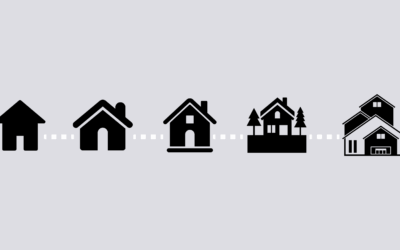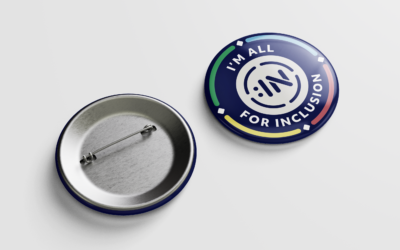Tina Tchen serves as President and CEO of TIME’S UP Now and the TIME’S UP Foundation, overseeing the organization’s strategic plans to change culture, companies, and laws in order to make work safe, fair and dignified for women of all kinds. A former assistant to President Barack Obama, executive director of the White House Council on Women and Girls, and Chief of Staff to First Lady Michelle Obama, throughout her career Tina has worked to advance gender equality, particularly for working women.
Noun Project has joined forces with TIME’S UP to launch a new collection of stock photos that celebrate empowered women leading at work, at home, in their communities, and beyond.
We spoke with Tina about her work and career path, how TIME’S UP is revolutionizing workplace culture for the better, and what she sees as some of the biggest opportunities to support the rise of more women and people from underrepresented communities in leadership today.
Hi Tina! Tell us a little about yourself — how did you get to where you are today? What was your career path?
I am a first-generation Chinese American, born and raised in the suburbs of Cleveland, Ohio. I credit my parents, who fled China as refugees at the end of WWII, for instilling in me the desire and ambition to improve the lives of others and create a world where everyone has an equal chance to thrive.
After college, I landed in Springfield, Illinois, working for the state government on child welfare issues, then headed to law school in Chicago. After clerking in the federal court in Chicago, I spent two decades as a lawyer at a large national law firm, and had the unique opportunity to argue a case at the U.S. Supreme Court before I became a partner. Throughout those years since college, in my spare time, I worked with gender equity organizations and on progressive political campaigns, including efforts to get more women elected into office. That included supporting Barack Obama through his campaigns, including his 2008 presidential bid. I joined the administration, working first as the Director of the Office of Public Engagement in the President’s outreach office, and then as Chief of Staff for First Lady Michelle Obama. I also served for all eight years as the Executive Director of the White House Council on Women and Girls.
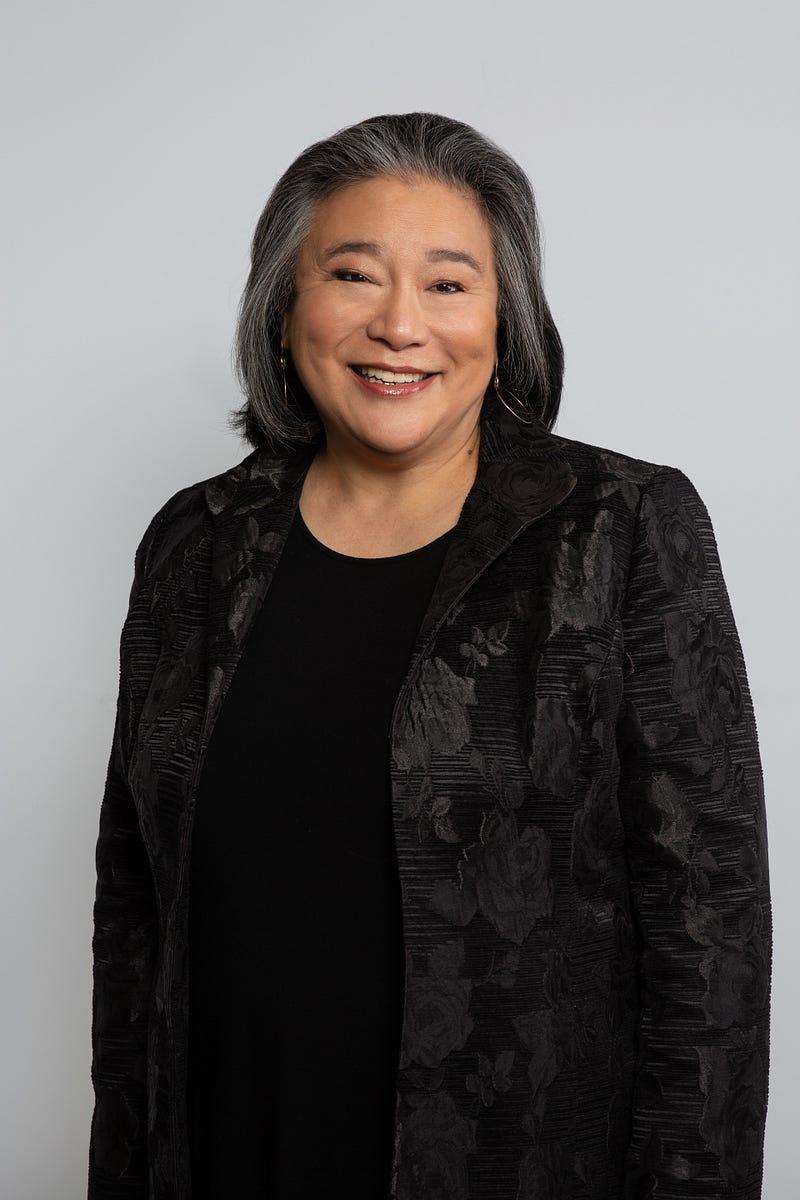
Among the issues we worked on during the Obama administration was a suite of initiatives focused on breaking down the barriers that keep women and other workers from succeeding in the workplace, such as unequal pay, the lack of paid leave, and ongoing gender and race discrimination. We developed a working families agenda and held the first-ever White House Summit on Working Families. Through that work, I saw that many companies were interested in making progress on these issues, but didn’t know how. So after the White House, I returned to Chicago, joined a law firm in 2017, and started a practice focused on advising companies on workplace culture.
That fall of 2017, I was in Los Angeles right after the reporting on the sexual harassment by Harvey Weinstein, and joined the women who were coming together in the wake of that reporting to talk about what to do in response. From those meetings was born the idea of TIME’S UP and our first initiative, the TIME’S UP Legal Defense Fund, which I helped to co-found and which is housed and administered by the National Women’s Law Center. I continued to volunteer with TIME’S UP, until November 1, 2019, when I left my law practice to join TIME’S UP full time as President and CEO.
You had a very successful career in law and have been a constant advocate for women. Can you tell us more about your work in law and your early work advocating for the women’s movement?
I was living in Springfield, Illinois from 1978 to 1981, a time when all of the national efforts to ratify the Equal Rights Amendment (ERA) were focused on Illinois, the only northern industrial state that had not ratified the ERA. It was then that I learned about the movement for gender equity, as well as advocating, organizing, and demonstrating for our rights. That was when my lifelong passion to work for gender equity was born. I continued that work after we lost the ERA by joining other women advocates and helping to rewrite and reform Illinois’s sexual assault laws, which at the time were among the most antiquated in the country. Our legislative leader in that effort was then-Illinois State Senator Dawn Clark Netsch, who worked with us as a partner to address the complexities in the bill. She was instrumental in our success, and demonstrated to me and the public the importance of having women in leadership. The next year, in 1984, several of us came together to create Cook County Democratic Women, an organization dedicated to recruiting, supporting, and electing progressive women candidates up and down the ballot in Cook County.
I continued my activism for gender equity and women’s leadership as my extracurricular work while I practiced law. I helped launch Personal PAC, the Illinois Political Action Committee dedicated to electing pro-choice state legislators. In the last 30 years, I am proud that Personal PAC has succeeded in transforming Illinois from one of the most anti-abortion rights states in the nation to one of the most supportive of women’s health, with state laws that will protect reproductive freedom, regardless of what decisions come from the U.S. Supreme Court. This also included working on progressive Democratic politics. It was through this work that I came to know a particular young activist. I supported several of his political campaigns, including the one that landed him in the White House.
What were some of the challenges you faced getting to where you are today and what are some of the challenges you are working through now?
I was a single mom raising two kids throughout my career, so I experienced first-hand the struggle to work and care for your family. I had means — as a lawyer — to make this easier and it was still hard. I know that it is exponentially harder for women working at minimum wage jobs or in jobs without sick days or paid family leave. That experience has fueled my passion to address the structural barriers that have held women and other workers back for so long.
We are seeing those barriers in stark relief now, as the COVID-19 pandemic and the national racial reckoning have magnified the ways our society has failed women — especially women of color. Women are the majority of essential workers, our caregivers, our farmworkers, our grocery clerks, our pharmacy assistants, and more. Yet women held more than 55 percent of the jobs that remain lost, and Black and Latinx women — who tend to have lower-paid jobs without access to paid leave or caregiving options — are facing particularly high rates of unemployment. According to the latest jobs report, there are 2.2 million fewer women in the workforce compared to 1.5 million men since January, and we run the risk of losing the progress we have made in terms of gender equity over several generations, virtually overnight.
With many schools now being remote, nearly 4.5 million child care slots in danger or gone, caregiving is now a full-blown crisis, along with the pandemic, the economy and racial injustice. This is why I feel a tremendous sense of urgency to solve the caregiving crisis roiling our country — it is an economic and gender justice imperative for our leaders across government and business.
You spent eight years at the White House as Chief of Staff to First Lady Michelle Obama and as the Executive Director of the White House Council on Women and Girls, where you led the first ever White House Summit on Working Families and the first ever United State of Women Summit. How did you first get involved with the Obama administration and what prompted the shift from law to your work at The White House?
Along the way in my work on gender equity and progressive politics, I met Barack and Michelle Obama, long enough ago that none of the three of us remembers how we met. I was always involved in his campaigns and after he was elected President in 2008, he asked me to join the administration. And when the president asks, you do it.
I joined the White House right after Inauguration Day 2009, first as Director of the Office of Public Engagement, which was the president’s outreach office. Then in January 2011, I became chief of staff to First Lady Michelle Obama. And for all eight years, I was also Executive Director of the White House Council on Women and Girls, which was chaired by Valerie Jarrett. The Council was comprised of every Cabinet agency and every White House policy office, so we oversaw all of the policies and initiatives that affected the lives of women and girls. As someone who has been devoted to the issues concerning women and girls my entire adult life, working in the Obama administration was a once-in-a-lifetime opportunity to work with the entire breadth of the U.S. federal government to find all the ways we could improve the lives of women and girls.
What inspired you to join the team at TIME’S UP?
In many ways, all of my professional experiences prepared me for my role at TIME’S UP. We were born out of the pain of sexual harassment and our commitment to survivor justice. Our first initiative, the TIME’S UP Legal Defense Fund, has helped thousands of survivors who are taking the brave step to speak out and seek justice.
But we are not just working to address sexual harassment after it happens — we want a world where sexual harassment does not occur, which means building workplaces that are safe, fair, and dignified for everyone. And through TIME’S UP Foundation and TIME’S UP Now, I am focused on getting at the root of the problem — by confronting the deeply-embedded racial and gender inequities that allow sexual harassment to occur in the first place.
Here I get to draw upon my experience as an activist, a corporate lawyer, a government leader, a single working mom, and — above all — a passionate advocate for justice.
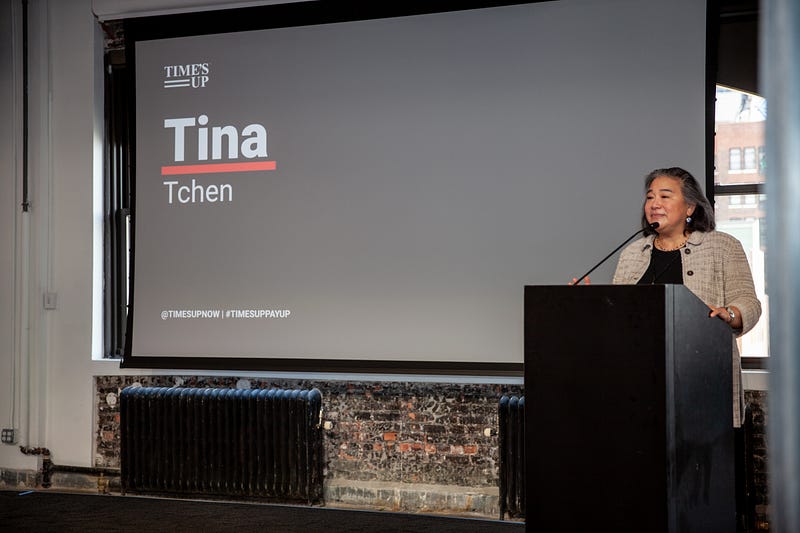
Part of the important work TIME’S UP is doing is focused on creating workplace cultures where everyone feels safe, respected, and able to reach their full potential. What do you see as some of the most meaningful actions leaders can take to support the rise of more women and people from underrepresented communities in leadership today?
We are at a transformational moment, where the inequities that underrepresented communities have faced for generations have been exposed for everyone to see — from the unequal pay that women working on the frontlines confront every day to the persistent sexual harassment and gender and race discrimination that occurs, whether work is remote or in person. Employers are realizing that solving the caregiving crisis their workers are experiencing is good for business. We now need to seize this moment to make the changes that can build inclusive, anti-racist, and equitable workplaces. Leaders who are interested in taking steps now can refer to the TIME’S UP Guide to Equity and Inclusion During Crisis, which we issued earlier this year precisely to address these issues in every workplace. You can download TIME’S UP’s Guide to Equity and Inclusion During Crisis by texting LEADERS to 306–44.
On a state and national level, leaders across every sector need to join with us to advocate for the structural changes we need to rebuild our workplaces so they work for everyone. For example, the United States remains the only industrialized country in the world without a national paid sick leave or paid family leave policy.
Now is the time to change that. We lack a caregiving infrastructure because the U.S. sees caregiving as an individual problem for workers to solve on their own, rather than a critical investment in our economy. Now is the time to have fair wages for caregivers and build the infrastructure so everyone can access safe and affordable care for their loved ones. And we need to eliminate the persistent gender wage gap that keeps women, especially women of color, in poverty.
When you look to the future, what inspires you and what initiatives are you most excited about right now?
We are launching Time’s Up, Measure Up — a five-year initiative that will study the impact of the pandemic and economic crisis on women to keep us front and center in the recovery and beyond. To date, it is the only post-COVID-19 comprehensive research project designed with a gender lens. Our vision is nothing short of rebuilding an economy and society that finally measures up to what women deserve. I find this project both very exciting and absolutely necessary at once.
What advice would you give to women who are currently navigating the path to leadership at work or in their communities?
One of the things we have seen in 2020 — with the unprecedented numbers of women running for public office and the election of the first woman of color as Vice President of the United States — is that the old, sexist, and racist tropes about women leaders still persist. Women navigating the path to leadership, whether at work or in their communities, have to navigate through the critiques of their work that are grounded in those old attitudes or the daily microaggressions that can chip away at how you are viewed as a leader. What is important, however, is not to let those subtle — or not so subtle — criticisms get inside your head and undermine your confidence. Know that you belong in the rooms where it happens, at those tables where decisions are made, and make your voice and your views known. And while you are there, reach back and bring another woman along with you!
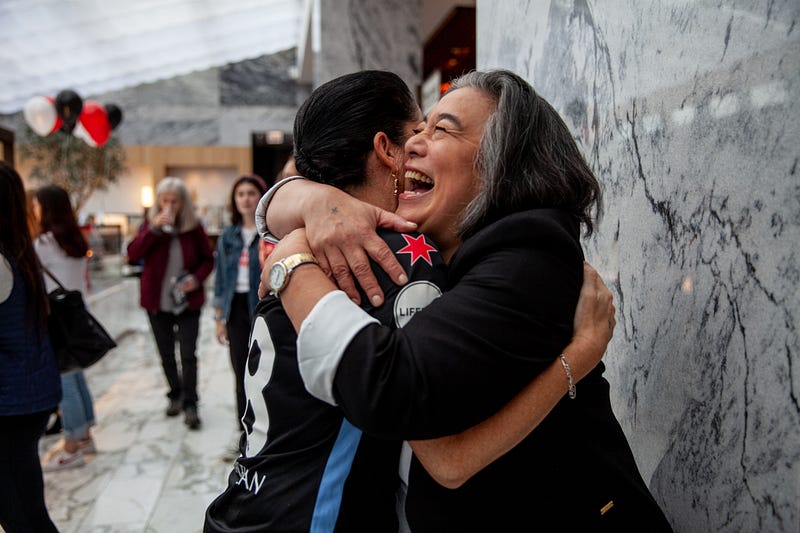
How can people support the work you’re doing?
Visit our website, timesupfoundation.org or text TIMES UP to 306–44 to join the fight for safety and equity at work. We are fighting for systemic change — but that only happens when millions of people stand up and speak out.
About TIME’S UP Foundation
The TIME’S UP™ Foundation insists upon safe, fair, and dignified work for all by changing culture, companies, and laws. We enable more people to seek justice through the TIME’S UP Legal Defense Fund™. We pioneer innovative research driving toward solutions to address systemic inequality and injustice in the workplace through the TIME’S UP Impact Lab. And we reshape key industries from within so they serve as a model for all industries. The TIME’S UP Foundation is a 501(c)(3) charitable organization.



